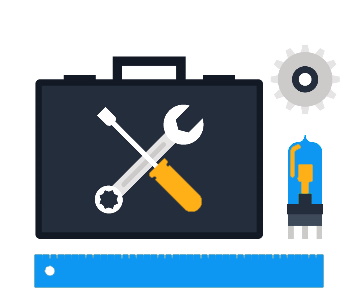Why have a WordPress maintenance plan?
Have a WordPress maintenance plan is an important part of managing a website or blog. It helps keep your site up-to-date, secure and in good working order. A dedicated WordPress maintenance plan can help protect you from potential security breaches, malicious attacks and other risks associated with managing an online presence. In this article, we'll discuss the importance of having a WordPress maintenance plan and how it can benefit both small business owners and large organizations.

Overview: What is WordPress?
WordPress is a content management system (CMS) used by millions of people worldwide to create and manage websites. It was first released in 2003, and since then has become one of the most popular web development platforms available. WordPress provides users with an intuitive interface for creating web pages, blogs and other types of content without the need for coding or web development skills.
The platform makes it easy to manage all aspects of a website, including adding plugins and themes that let users customize the look and feel of their site, as well as adding features such as e-commerce integration. What's more, WordPress allows users to use various SEO tools to improve their site's visibility on search engines like Google.
Advantages of the WordPress maintenance plan
A WordPress maintenance plan offers invaluable benefits to website owners, who can save time and money by keeping their site up-to-date and secure. The maintenance plan includes regular plugin updates, ensuring that all plugins are up to date and free of security flaws.
It also includes security scans to detect malware and other malicious code, which can damage a website's reputation and SEO ranking.
What's more, the maintenance plan will guarantee that all website content is backed up regularly, so that in the event of a problem or crash, all information is safe. This ensures that websites continue to function without interruption due to data loss or corrupted files.
In addition to these technical aspects of the WordPress maintenance plan, it also provides help with marketing activities such as SEO optimization and content creation.
Security updates for WordPress
Security updates are an essential part of any WordPress maintenance plan. Hackers exploit outdated software and plugins to gain access to websites, so it's important to keep everything up to date. WordPress core, themes and plugins all need to be updated regularly to ensure your site is protected against malicious attacks or breaches.
You should also consider using a security plugin like Wordfence or iThemes Security Pro, which can scan your code for vulnerabilities and alert you if problems are detected.
It's also important to regularly back up your website in case you need to restore it due to a problem with one of the security updates that has been applied. This way, you can undo the update without losing any content or changes you've made since then.
Automating WordPress backups
Automating WordPress backups is an essential part of any successful WordPress maintenance plan. It ensures that all website data is safely backed up in the event of a problem with the site, and can help prevent costly downtime or data loss.
Manual backups are time-consuming and can be tedious if performed too often. Automated backups eliminate this problem by enabling the entire website to be archived regularly - usually once a day - with minimal effort on the part of the user.
Once configured, automated backups require no further maintenance on the part of the user, apart from an occasional review of their accuracy. What's more, these files can also be stored remotely for added security, ensuring that all website data remains safe and secure even in the event of an unforeseen disaster or hardware failure.
WordPress database optimization
WordPress database optimization is an important part of a WordPress maintenance plan. By optimizing your databases, you can dramatically reduce page load times and improve the overall performance of your website.
A key aspect ofdatabase optimization is to remove all unnecessary data that may have accumulated over time, such as publication revisions and spam comments. This keeps the size of your databases small and efficient, improving their speed and performance.
What's more, it's also important to regularly back up your databases so that you can quickly restore them in the event of a problem or security breach. Finally, ensuring that all plugins are regularly updated will help guarantee that all queries sent to the database are optimized for maximum efficiency and minimum loading time.
Maintenance monitoring and support
Setting up a WordPress maintenance plan is just the first step in keeping your website safe and running smoothly. Once you've implemented your plan, follow-up support and maintenance are essential to keep track of any necessary changes or updates over time.
Maintenance providers should be available to answer questions and concerns about your site's security, performance and other potential problems. They can offer advice on how to keep the site running efficiently while avoiding potential problems such as malware attacks or plug-in conflicts.
What's more, they can provide information on areas of the site that need particular attention, so you can focus on improving those areas first.
Regular follow-up maintenance also ensures that all plugins are updated regularly and that all necessary backups are properly supported.
Conclusion: why have a WordPress maintenance plan?
In conclusion, the benefits of having a WordPress maintenance plan are clear and cannot be underestimated. It can save you time, money and energy in the long run, allowing you to focus on other aspects of your business or website. A good maintenance plan will keep your WordPress website running smoothly and efficiently, while providing additional functionality for added security and convenience.



